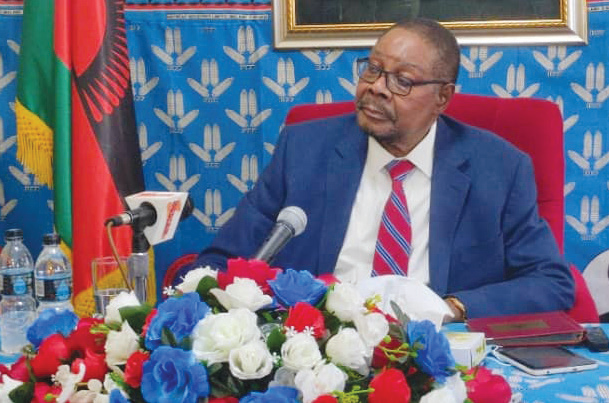Government should focus on groundwork to unlock FDI
President Lazarus Chakwera has gotten some bad press over his perceived globetrotting. The frequent trips are widely seen as a waste of the country’s forex reserves, which are already in a very sorry state.
But for all their perceived flaws, the President is using the foreign trips as a platform to entice foreign businesses to invest in the local economy. According to him, “Malawi will be one of the hottest destinations for foreign direct investment in the foreseeable future”.
Chakwera should be commended for implementing the projects he has undertaken in the past years. The road and rail networks should improve transportation in the country. The energy projects should boost electricity generation.
But there is a caveat. These investments will not count for much if the government does not revitalise the economic sectors in the country to make them investor-ready.
It is an open secret that Malawi has been lagging behind its peers in electricity access. The slow progress in electrification has stunted the development of energy-intensive sectors such as manufacturing and mining.
Malawi remains one of the least electrified countries in the world. Only 19 percent of the local population is connected to the national grid, according to the July 2023 edition of the World Bank’s Malawi Economic Monitor.
To put it into context, the country’s neighbours Mozambique and Tanzania began the early 2000s with an access rate at below 10 percent, the same position as Malawi, but have significantly raised their access rates to above 30 percent.
If Chakwera and his lieutenants in the Tonse Alliance are serious about attracting foreign direct investment, then they should focus on addressing the energy problems. No investor will come to invest in mining and agro-processing while the perennial blackouts persist.
Malawi is currently in a state of deindustrialisation thanks to the blackouts that have dogged the country since 2017.
As recently as last year, the blackouts would last up to 12 hours. Malawi will not be an attractive destination for investment until the government can guarantee that their businesses will have to contend with a full working day without electricity.
While the President is working towards improving the country’s transportation and electricity systems, the government, through the Ministry of Agriculture, should focus on de-risking the agriculture sector, the mainstay of the country’s economy.
The government, private sector and financial institutions will have to implement strong, consistent and sustainable measures to de-risk the agricultural value chain, from planting, harvesting and storage to entice investors to release the much-needed financing to the sector.
In a policy brief, Commercial Agriculture for Smallholders and Agribusiness observed that private sector investors will need significant derisking and blended finance in countries that are most affected by acute food insecurity.
Investors also prefer environments where there is policy predictability and demonstrated national commitments to domestic regional food and agriculture strategies, mostly because of the long timeframes and risks for most agricultural investments.
The initiatives, if implemented correctly, reduce the risk of investing in the agriculture sector, therefore, making it more commercially viable enough to persuade private-sector investors to release the funds required to catalyse the growth of the sector.
Ideally, the measures should be targeted at the factors that reduce existing inefficiencies in smallholder agriculture and increase their resilience to climate and weather-related shocks. How does the government achieve this?
First, the government and its implementing partners would have to encourage farmers to use certified seeds to mitigate the risks posed by erratic weather patterns.
Second, the government will have to introduce structured markets, similar to the ones available for tobacco, maize and cotton. This will provide a guarantee for external buyers that local suppliers will deliver their products when commissioned to deliver produce.
Lastly, the government will have to invest in the production of inputs such as inorganic fertilisers and certified seeds to reduce the cost of production.
The measures would remove the inefficiencies that have plagued the agricultural sector and make it more productive. Only then, will investors disburse the funds in the sector and unleash its potential as a driver for Malawi’s economic transformation.
Once the problems in the agriculture sector have been rectified, the country can then move on to other sectors such as mining and tourism.





